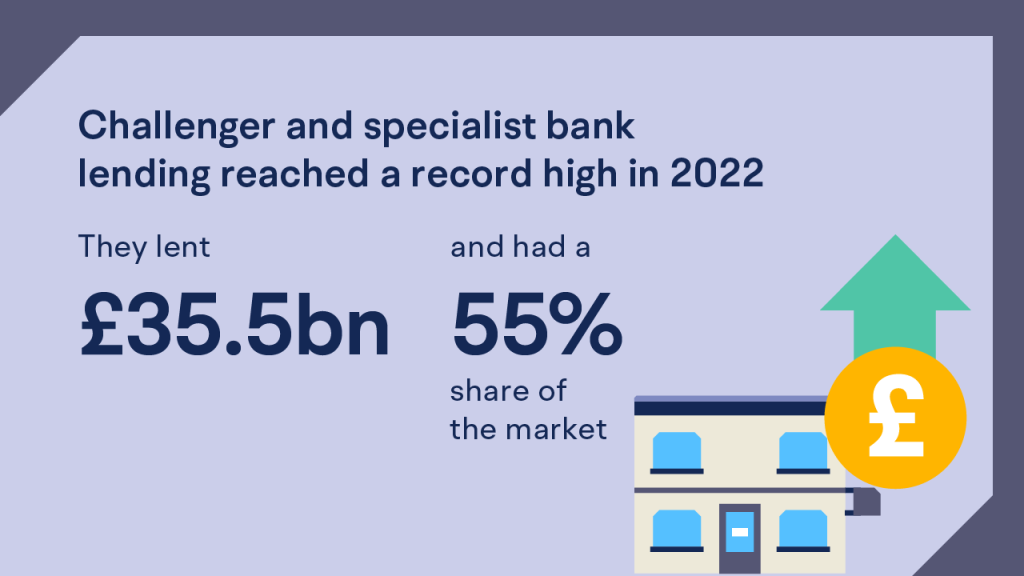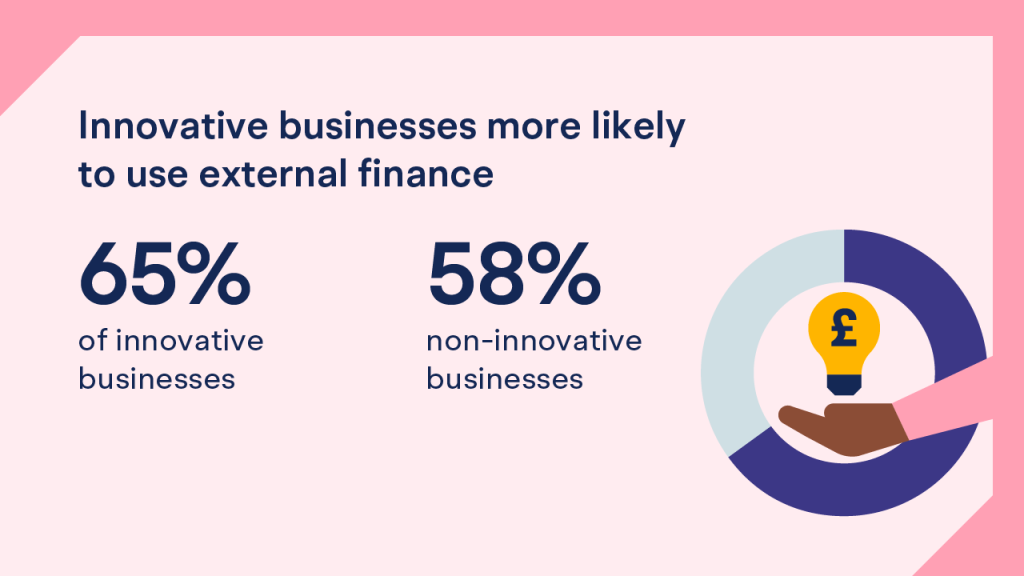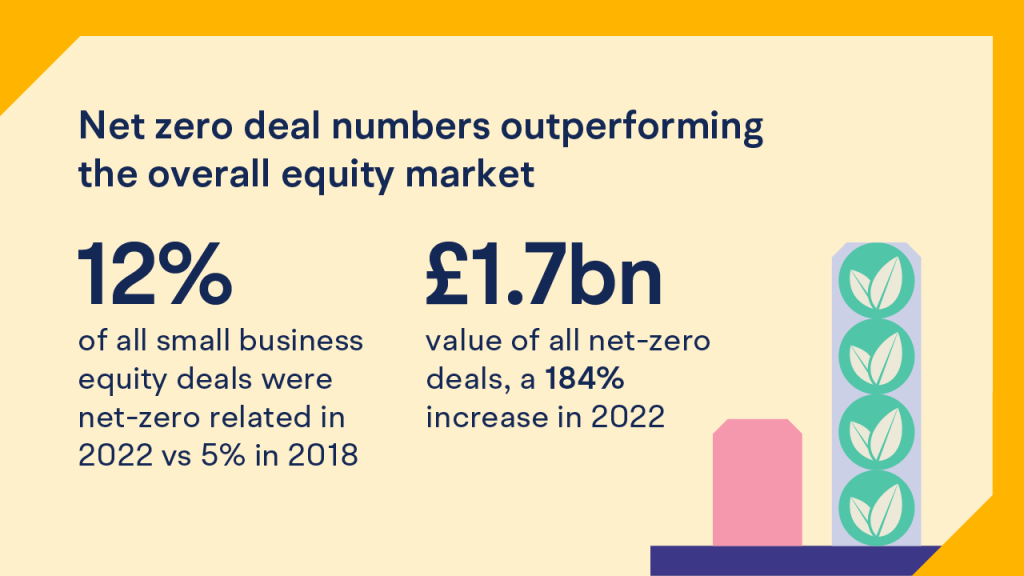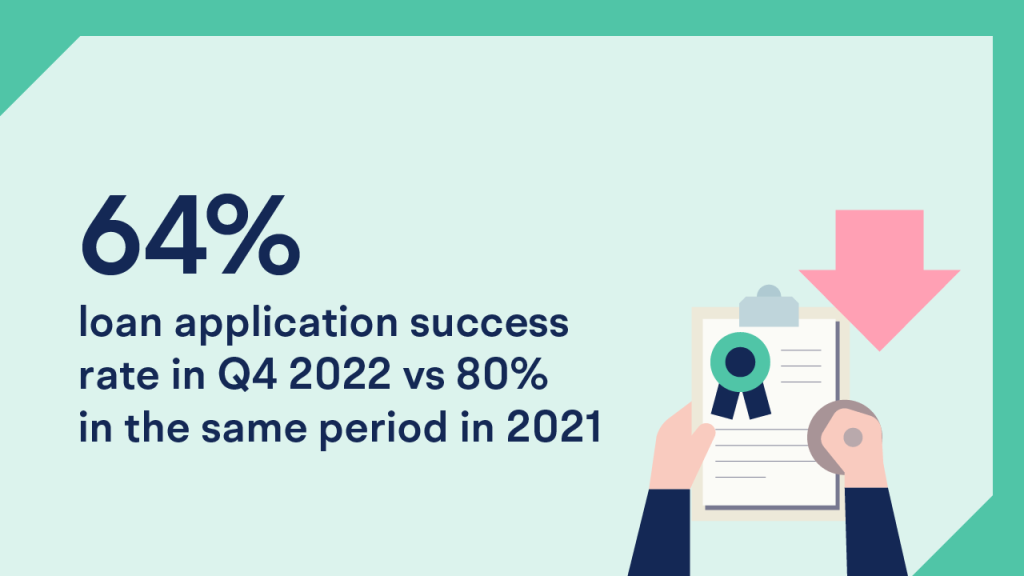
Bank lending by challenger and specialist banks claimed a 55% share of the market in 2022, according to a report by the British Business Bank (BBB).
In its Small Business Finance Markets 2022/23 report, the BBB said major banks were knocked off their perch last year as specialist providers lent £35.5bn to SMEs.

Gross bank lending increased by 12.8% in 2022, however, net lending fell by £8.5bn in large part reflecting repayment of Covid loans.
The report reveals the smaller business asset finance market also reached a record level in 2022 with an increase in new business of 11% in 2022 to £22.1bn. This was driven in part by some easing of supply chain shortages and by rising asset prices.
Simon Goldie, director of business finance at the Finance & Leasing Association (FLA) said: “The fact that SMEs are increasingly choosing to borrow from challenger and specialist lenders underlines the importance of having a broad spectrum of providers to ensure that much-needed finance reaches all corners of the economy.
“The report also revealed that the asset finance market saw record levels of new business in 2022. Leasing and hire purchase are popular products with SMEs – they make good business sense.
How well do you really know your competitors?
Access the most comprehensive Company Profiles on the market, powered by GlobalData. Save hours of research. Gain competitive edge.

Thank you!
Your download email will arrive shortly
Not ready to buy yet? Download a free sample
We are confident about the unique quality of our Company Profiles. However, we want you to make the most beneficial decision for your business, so we offer a free sample that you can download by submitting the below form
By GlobalData“In the current economic conditions, firms may want to maintain some flexibility with their cash flow. Depending which sector they operate in, they may not want to buy an asset outright if they operate in a high tech industry where obsolescence is a factor or if they only need it for a few months at a time.
“Because of the inherent flexibility of asset finance, it is all the more frustrating that the Super-Deduction does not include these options.
“The FLA and seven other trade bodies have written to the Chancellor recommending that a new Green Super-Deduction replaces the existing programme when it comes to an end in March.
“This would help to address an additional finding in the British Business Bank’s report – that Net Zero deals are concentrated in London. Net Zero is a national issue, and firms across the country need finance options that work with the grain of their business.”
‘SMEs need a new Green Super-Deduction to help net zero transition’
Demand for smaller business finance is down
The data reports a considerable drop in the demand for external finance. In Q3 2022, only 33% of smaller businesses were using external finance compared to 44% the year prior. Gross lending grew despite fewer smaller businesses using finance, as they sought larger loans to support their business due to inflationary pressures. In addition, survey findings show that success rates for those seeking loans fell sharply from 80% to 64% year on year.

For the smaller business equity finance market specifically, investment activity has slowed considerably since Q3 2022. Recent years have seen larger equity deal sizes and increased company valuations but in recent months investors have re-evaluated their positions leading to smaller deals and lower valuations.
Net zero deal numbers outperforming the wider equity market
Data shows that equity finance markets are adapting to growing demand for investment in green innovation with net zero deals outperforming the wider equity market. These deals currently make up 12% of all smaller business equity deals compared to only 5% in 2018, and deal values are rising even faster. Investment value of net zero-related deals rose by 184% over the past year, soaring to a new record level of £1.7bn.
The majority of net-zero related deals are currently concentrated in London, accounting for 36% of UK deals and a third of the investment value. Outside of the capital, the South East of England and Scotland account for a greater share of net-zero-related deal count or investment value than their share of UK turnover from low-carbon sector businesses. All other Nations and regions have a lower share by comparison.

The British Business Bank is committed to financing ground-breaking solutions to climate change to help smaller businesses transition to net zero. By breaking down barriers it will enable more entrepreneurs and business owners to contribute to the goal of a net zero economy by 2050.
Innovation required to boost productivity and economic growth
The report reinforces the importance of innovation in order to scale up UK productivity rates and encourage economic growth in a challenging macro-economic climate.
The UK is ranked second in the G7 for our innovation environment by the Global Innovation Index, but the UK’s ranks fifth in the G7 nations in terms of the proportion of its smaller businesses that are innovative. The UK would require around 440k more innovative smaller businesses to meet the G7 average.
Innovative businesses are more likely to use some form of external finance (65% vs 58% of non-innovators). Smaller businesses seeking finance to innovate are also reported to be using a wide range of finance products, with many smaller businesses opting for grant finance, asset finance or bank overdrafts to help them develop and adopt innovative products and processes.

However, availability of finance (9%) and the cost of finance (8%) are identified as significant barriers to innovation.
Louis Taylor, CEO, British Business Bank, said: “Today’s report finds strong growth from challenger and specialist banks, as well as asset finance provision, as businesses seek alternative finance options. There are promising signs of growth in the net-zero deal sector as equity finance markets respond to growing demand for investment in green innovation.”
“Smaller businesses are clearly adapting to a challenging economic climate, with many reducing their use of external finance. At the British Business Bank, we are committed to supporting these businesses as they seek to achieve sustainable growth, and in turn boost economic productivity, by improving their access to external finance.”
Read More: Leasepath achieves third consecutive year of record growth






